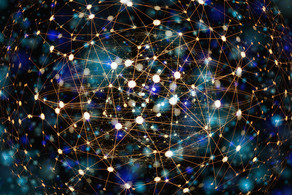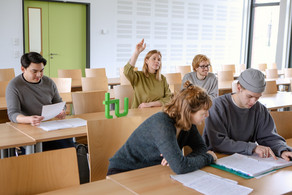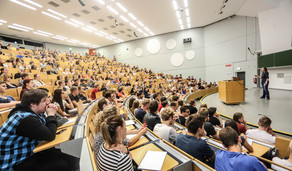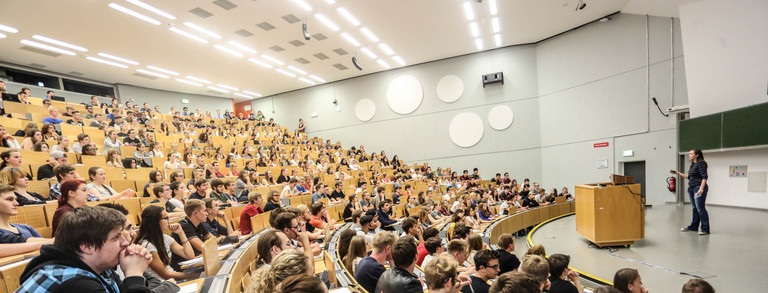AI Colloquium
The AI Colloquium is a series of lectures dedicated to cutting-edge research in the field of machine learning and artificial intelligence, coorganized by the Lamarr Institute for Machine Learning and Artificial Intelligence (Lamarr Institute), the Research Center Trustworthy Data Science and Security (RC Trust), and the Center for Data Science & Simulation at TU Dortmund University (DoDas).
Programme
Distinguished researchers deliver captivating lectures followed by vibrant discussions. However, unlike traditional colloquia, the AI Colloquium prioritizes interactive dialogue, fostering international collaboration. Conducted primarily in English, these 90-minute sessions feature hour-long lectures and 30-minute Q&A sessions. Join every Thursday at 10 AM c.t. for a stimulating exploration of cutting-edge topics. Whether in-person at our Lecture Room on Fraunhofer Strasse 25 or via Zoom, our hybrid format ensures accessibility for all.
| Day (usually) | Thursday |
| Start and end time | 10 AM c.t. - 12 AM |
| Duration of Presentation | 60 Minutes |
| Location (usually) | Lecture Room 303 3. Floor Fraunhofer Strasse 25 Dortmund |
Upcomming Events
The road to AI-based discovery
- Lamarr
- Physics

Abstract: Machine learning and AI have quickly turned into indispensable tools for modern particle physics. They both greatly amplify the power of existing techniques - such as supercharging supervised classification - and enable qualitatively new ways of extracting information - such as anomaly detection for unsupervised discovery. After briefly introducing the environment of collider based particle physics, this talk will review key developments and new directions in machine learning applied to data analysis.

Bio: Gregor Kasieczka joined Universität Hamburg in 2017 where he is a professor for machine learning in particle physics. His work focuses on discovering exotic new particles with the CMS experiment and on developing new techniques for data analysis — including anomaly detection, generative machine learning, and foundational models — in fundamental physics. He is an author of the first textbook on machine learning for physicists “Deep Learning For Physics Research”.
Past Events
The road to AI-based discovery
- Lamarr
- Physics

Abstract: Machine learning and AI have quickly turned into indispensable tools for modern particle physics. They both greatly amplify the power of existing techniques - such as supercharging supervised classification - and enable qualitatively new ways of extracting information - such as anomaly detection for unsupervised discovery. After briefly introducing the environment of collider based particle physics, this talk will review key developments and new directions in machine learning applied to data analysis.

Bio: Gregor Kasieczka joined Universität Hamburg in 2017 where he is a professor for machine learning in particle physics. His work focuses on discovering exotic new particles with the CMS experiment and on developing new techniques for data analysis — including anomaly detection, generative machine learning, and foundational models — in fundamental physics. He is an author of the first textbook on machine learning for physicists “Deep Learning For Physics Research”.
The road to AI-based discovery
- Lamarr
- Physics

Abstract: Machine learning and AI have quickly turned into indispensable tools for modern particle physics. They both greatly amplify the power of existing techniques - such as supercharging supervised classification - and enable qualitatively new ways of extracting information - such as anomaly detection for unsupervised discovery. After briefly introducing the environment of collider based particle physics, this talk will review key developments and new directions in machine learning applied to data analysis.

Bio: Gregor Kasieczka joined Universität Hamburg in 2017 where he is a professor for machine learning in particle physics. His work focuses on discovering exotic new particles with the CMS experiment and on developing new techniques for data analysis — including anomaly detection, generative machine learning, and foundational models — in fundamental physics. He is an author of the first textbook on machine learning for physicists “Deep Learning For Physics Research”.





